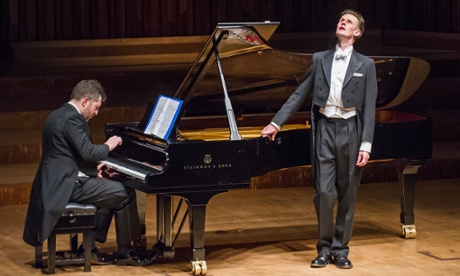
By common consent the greatest of song cycles, Schubert’s Winterreise is also a work to which tenor Ian Bostridge feels a special commitment: he has performed it more than 100 times, and his recent book on the piece is subtitled Anatomy of an Obsession. There can be few singers, indeed, who have explored this material with as much diligence as he has brought to it.
But for any artist the live re-creation of this psychologically dark masterpiece is the real challenge, and in this Barbican performance, in which Bostridge shared the platform with pianist Thomas Adès, the two offered something unusually detailed and concentrated. If sharp definition is generally a mark of Bostridge’s interpretations, then this work in particular suits him down to the ground.
While there are undoubtedly singers who bring to Winterreise more lyrical voices, or a wider selection of vocal colours, what Bostridge achieves with his idiosyncratic palette remains an extraordinary achievement. Here his approach was measured, not overemphasised, with an ambitiously full range of dynamics on offer; the Barbican is a large space for such an essentially intimate work to fill, but there was never any doubt that this performance would maintain an appropriate scale. The tenor’s physicality, too, was used as an expressive device throughout – mostly discretely, in his painful awkwardness of stance and gesture – even if at one moment he seemed on the point of climbing into the piano.
Individual songs will linger long in the memory: the haunted, haunting line of Wasserflut, and equally its sharp eye for text; the stresses and strains of Irrlicht; the blanched quality of Der Greise Kopf; the pallor of Die Krähe, with its snarling finish. Yet it was less in such details as in its striking overview that the integrity of Bostridge’s interpretation registered, floodlit by his combination of narrative mastery with apparent spontaneity.
Adès proved a fully equal partner, whose own contribution was regularly understated but also managed to reveal much of the music’s character, while remaining deftly fluent. Notable throughout was his subtle balancing of the piano part’s internal voices, including his highlighting of vital secondary lines. In Frühlingstraum he travelled from the infinite delicacy of the innocent opening melody to the dull thud of the concluding chord. He found sepulchral sonorities in Das Wirtshaus, eerie half-lights in Die Krähe, and communicated marvellously the deceptive simplicity of Täuschung.

